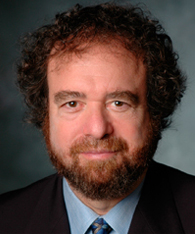Gerry Riskin, empezó su carrera como abogado en el despacho Emery Jamieson y después pasó a ser Managing Partner de Snyder & Company. Su experiencia en estas firmas fue decisiva cuando dio el salto a la asesoría. Sus conocimientos profesionales y una reconocida habilidad para enseñar las técnicas más exitosas para atraer clientes lo han consolidado como uno de los rainmaker´s más importantes de Norte América.
El Marketing es una de las disciplinas que enfrentan una mayor dificultad para pasar de los enunciados a la vida real. Es difícil encontrar verdaderos consejos que provengan de la experiencia y el conocimiento, pasos que trasciendan la óptica del derecho propiamente dicho y nos permitan entender la relación entre el mercado y los profesionales. Hoy contamos con algunas reveladoras ideas de uno de los profesionales más eminentes del Legal Marketing a nivel internacional.

What trends do you see in marketing professional services?
One, there is a very tired, overused word called differentiation and respectfully, most people in professional services firms don't know what that is. If they do know what it is, they are challenged about how to apply it in a professional services firm. I believe differentiating is becoming more and more important. It is possible, and it rests with going through a process of understanding of an individual or a group, what it is that they have done — their specific experience base — that really is unique and impressive.
Would you agree that clients hire accountants and attorneys based on their specific experience in an industry or service area?
I agree completely. I think that there are choices out there. Even sophisticated clients, even with relationships within professional service firms, probably can think of one or two or three alternatives and at that stage I think the firms or groups or individuals that have successfully differentiated themselves will stand alone and be the preferred provider.
There are statistics that if you're in the top three firms your opportunities to bid on new work are so much greater than if you're number four.
I'm sure that's right. Now, in terms of differentiating, I wanted to add that I think as imperfectly as the profession has approached that subject they have focused on their substantive practice capability. I truly believe that differentiating today or into the near future is going to require not only the substantive practice capability but the methodologies as well. This is another area that many good professionals haven't even begun to think about the relevance of their methodologies in addition to their substantive capabilities.
Explain more about methodologies.
There may be a practitioner who is extremely capable technically. Now, overlay that with some firms that have tried to understand well enough what clients want and need so that they can build in teams, processes that fit not only with the end result but also with the kind of interaction the client wants during the process depending upon their level of sophistication but also going to taking some cost out, if possible.
You're talking about not only soft skills, communication and relationship skills, but how else professionals can you compete to win clients.
Let's go to a very specific example, the leverage through technology. Don't tell me you're the best tax consultant or securities lawyer, that's not enough anymore. With all due respect, I have three people in mind who are all brilliant, just like you. Now, tell me that you've invested inside your team in technology, processes, etc. that allow you to produce more quickly, more effectively, and with higher quality. If one of you can demonstrate that you're going to be my preferred provider. Especially if I'm a person inside a corporate client who has tremendous budgetary pressures on me. Even if I like you, and even if I think you're the smartest, if someone who is very capable can deliver much more efficiently I'm afraid that's going to be very persuasive because I want to look good to my president or CFO.
Not becoming the low-cost provider but working more efficiently that you're able to offer the service at a lower cost.
It's interesting. It's a very delicate subject because sometimes the people who are building the methodologies and processes aren't even necessarily cheaper. They may give more value though, more tangible support to the client. For example, even in terms of documentation, as a professional we can provide documentation to a client but some professionals figure out what those documents are doing inside the client after they're delivered and they modify them so that the client can use them internally without changing them. It's simple but it's valuable especially as companies get bigger and they want to reduce the stress of the interaction.
What other trends do you see?
Well, you touched on something that is extremely important and that is industry knowledge. Again, if you ask a good professional, "Do you think industry knowledge is important?" the answer will be, "Yes." "Do you take steps to acquire industry knowledge?" The answer will still be, "Yes." Yet, with all due respect, many professionals don't have a clue. The reason is that they don't know the beginning of what it is really to learn about the industry of their clients and, again, there are some professionals that are starting to invest in doing just that. Really having industry people inside to speak to them, really going out and having secondments or reading the publications or speaking or listening but they're really starting to become industry knowledgeable. Professionals must start getting serious about it and not just giving lip service to it.
